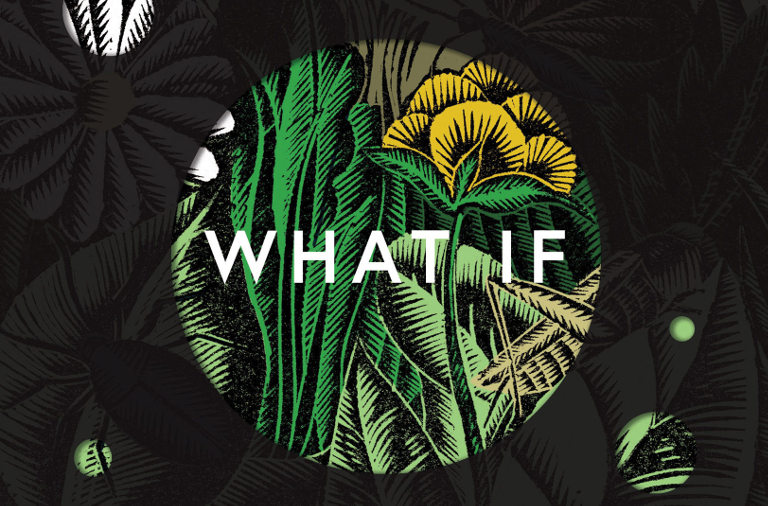In May I spent time at a (virtual) conference organised by Hawkwood Centre for Future Thinking, and among several outstanding talks I’m going to mention the one given by Transition Towns founder Rob Hopkins. The images in this piece all come from screenshots of his talk: I hope he forgives their use here.
It was based on his 2020 book, From What Is to What If and was a call for “a revolution of the imagination”. As someone who believes in the value and social power of visioning and preferred futures, this obviously struck a chord.
Hopkins started by defining imagination as “the ability to see things as if they were otherwise.” But, in the words of the American abolitionist Mariame Kaba, “We live in a system that has been locked into a false sense of inevitability.” My imperfect notes suggest that Kaba may also have talked about “the decline of imagination since the 1990s.”
The function of imagination is to bring “longing into the world”—I’d say that what this does is to create a narrative gap that we are then moved to fill. (In the Seeds of Good Anthropocenes approach, this is what the “mature seeds” are designed to do.)
For example, although as a species we only landed on the Moon in 1969, we had been there many times before in our culture, whether with Tintin as our guide, or Frank Sinatra.
Hopkins noted several examples of creating such imagination—the work of James McKay in Leeds, visualising different versions of a future Leeds. Or Transition Bude, which ran an extended “What If?” campaign to change future perceptions. Or the Swedish Green party, which used images of a desirable current life as a way to disrupt the present.
Hopkins shared his “imagination sundial”—a wheel based on four elements, of space, place, practices, and pacts.

(Image: Rob Shorter: CC BY-SA 4.0
Space is about creating what I’d call “looseness”—a bit more time, a bit more slack in the system, whether it’s a four day week or a form of Universal Basic Income. (And it’s possible to believe that Kaba’s “decline of the imagination” has something to do with the way that work regimes and technology have combined to squeeze our loose time, even our opportunities for boredom.)
Place is about disrupting the way we see the world around us—whether that is Extinction Rebellion foresting Waterloo Bridge, or “parking days”, where artists buy parking spaces for the day but don’t park cars in them.
Practices is about creating mental space for imagination—quite literally. Both memory and imagination are developed in the hippocampus, and the hippocampus shrinks in response to stress (specifically in response to cortisol).
One example of Practices is Transition Town Anywhere. Another is the Dundee Art Angel project which treats all its participants as artists, rather than clients or service users, even though its working with mental health issues. One of the requirements of participants is that they illustrate how they felt when they joined and how they feel now.
What if? questions also work as a practice. What if Tooting’s bus turning circle was a local green? What if the majority of food eaten in Liege was grown in the fields around the city?
Pacts are about making agreements to get things done. Bologna’s Civic Imagination Office, for example, enables new spaces and places to come into being by agreeing the commitments that the city will make—in exchange for the resources that other parties agree to bring in to make change happen.
I’d noticed Rob’s book when it came out last summer, although I hadn’t bought it. But the model sounds interesting and I’ve ordered the book to understand it better.
Cross-posted from my Just Two Things Newsletter.





